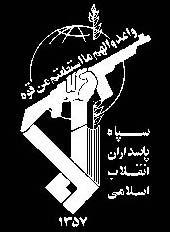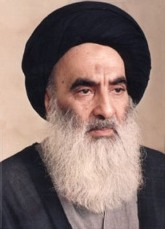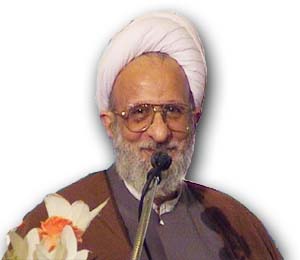The Pope was not taken out of context
The Vatican has been at pains to point out that the Pope's comments during his lecture at University of Regensburg have been taken out of context and that he did not intend to malign Islam. In his apology the Pope states:
"I am deeply sorry for the reactions in some countries to a few passages of my address at the University of Regensburg, which were considered offensive to the sensibility of Muslims. These in fact were a quotation from a medieval text, which do not in any way express my personal thought."
Yet unlike president Ahmadinejad, the Pope was not misquoted nor have his comments been misrepresented in the Muslim World. The Iranian newspaper Jamejam says,
"In a speech titled "Piety, Wisdom and Universities: Memories and Reactions" delivered Tuesday at Regensburg University in the German state of Bavaria, the pontiff claimed that unlike the Christian faith Islam rarely follows the rules of logic. Quoting a book titled "The Byzantine Empire," the Pope said the Prophet Mohammad (PBUH) had enjoined Muslims to spread their faith even by "such means as the sword." The Pope also ridiculed the ideas of Jihad (holy war) and other holy Islamic rituals."
Those who are taking his words out of context are those who have come to his defence. Whilst the Pope's is unequivocal that all "violence is incompatible with the nature of God", he is also equally unequivocal that Islam is violent,
'The emperor must have known that surah 2, 256 reads: "There is no compulsion in religion". According to the experts, this is one of the suras of the early period, when Mohammed was still powerless and under threat. But naturally the emperor also knew the instructions, developed later and recorded in the Qur'an, concerning holy war. Without descending to details, such as the difference in treatment accorded to those who have the "Book" and the "infidels", he addresses his interlocutor with a startling brusqueness on the central question about the relationship between religion and violence in general, saying: "Show me just what Mohammed brought that was new, and there you will find things only evil and inhuman, such as his command to spread by the sword the faith he preached".'
Thus he is at pains to assert that the Prophet Muhammad (saw) endorsed violent conversion, which is untrue, and to dismiss surah 2, 256, which contrary to his assertion in held to have been written 624 or 625, when the Prophet (saw) was in Medina. Hence it was written from a position of strength not weakness.
Moreover, the Pope clearly argued that Islam is irrational,
"The decisive statement in this argument against violent conversion is this: not to act in accordance with reason is contrary to God's nature. The editor, Theodore Khoury, observes: For the emperor, as a Byzantine shaped by Greek philosophy, this statement is self-evident. But for Muslim teaching, God is absolutely transcendent."
Again this assumption is incorrect; Christianity came to learn of Socrates, Plato and Aristotle, through the writings of Islamic philosophers such as Ibn Rashid and Ibn Sina.
Thus the Pope is accusing Islam of being "contrary to the nature of God", because he holds it to be violent and irrational; and:
"Not to act reasonably, not to act with logos, is contrary to the nature of God", said Manuel II, according to his Christian understanding of God, in response to his Persian interlocutor. It is to this great logos, to this breadth of reason, that we invite our partners in the dialogue of cultures."
The Pope is of course entitled to his view; however maligning Islam and calling it evil and inhuman, will not lead to constructive dialogue between the two faiths. The Pope seems unclear as to what position he wants to take towards Islam: one of mutual respect or one of conflict.








1 comment:
Sorry having a few technical problem with Haloscan, but Previous comments on this post can be found here
Post a Comment